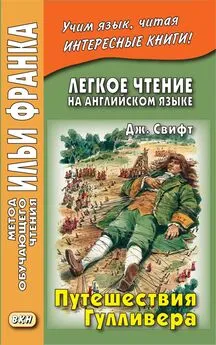The Theatre - Kellerman, Jonathan
- Название:Kellerman, Jonathan
- Автор:
- Жанр:
- Издательство:неизвестно
- Год:неизвестен
- ISBN:нет данных
- Рейтинг:
- Избранное:Добавить в избранное
-
Отзывы:
-
Ваша оценка:
The Theatre - Kellerman, Jonathan краткое содержание
For all its many crimes of passion and politics, Jerusalem has only once before been victimized by a serial killer. Now the elusive psychopath is back, slipping through the fingers of police inspector Daniel Sharavi. And one murderer with a taste for young Arab women can destroy the delicate balance Jerusalem needs to survive.
Kellerman, Jonathan - читать онлайн бесплатно полную версию (весь текст целиком)
Интервал:
Закладка:
"After one of their meetings, I followed him. To the bus station."
"The East Jerusalem station?"
"Yes." There was puzzlement in the answer. As if there was any other station but the one in East Jerusalem. To him the big central depot on the west side of town-the Jewish station-didn't exist. In Jerusalem, a kilometer could stretch a universe.
"What day was this?"
"Thursday."
"What time of day?"
"In the morning, early."
"You were watching them?"
"Protecting her."
"Where was their meeting?"
"Somewhere behind the walls. They came out of the New Gate."
"Where did she go?"
"I don't know. That was the last time."
Anwar saw Daniel's skeptical look and threw up his hands.
"It was him I was interested in! Without him she'd come back, be obedient!"
"So you followed him to the station."
"Yes. He bought a ticket for the Hebron bus. There was some time before it left. I walked up to him, said I was Fatma's brother, that I had money and was willing to pay him to stop seeing her. He asked how much money and I told him a hundred dollars American. He demanded two hundred. We haggled and settled on a hundred and sixty. We agreed to meet the next day, in the olive grove, before the sun rose."
"Wasn't he suspicious?"
"Very. His first reaction was that it was some kind of trick." Anwar's face shone with pride. His glasses slid down his nose and he righted them. "But I played him for a fool. When he said it was a trick, I said okay, shrugged, and started to walk away. He came running after me. He was a greedy dog-his greed got the better of him. We had our meeting."
"When?"
"Friday morning, at six-thirty."
Just shortly after Fatma's body had been discovered.
"What happened at the meeting?"
"He came ready to rob me, with the knife."
"The knife we found you with tonight?"
"Yes. I arrived first and was waiting for him. He pulled it out the minute he saw me."
"Did you see from which direction he'd come?"
"No."
"What did he look like?"
"A thief."
"His clothes were clean?"
"As clean as they'd ever be."
"Go on."
"He had the knife, ready to do me harm, but I'd come armed too. With a hammer. I kept it hidden behind the trunk of the tree that had fallen. I pulled out ten dollars. He grabbed it out of my hands and demanded the rest. I said the rest would come in installments. Five dollars a week for every week he stayed away from her. He started adding it up in his head. He was slow-witted-it took him a while. 'That's thirty weeks,' he said. 'Exactly,' I answered. There's no other way to deal with a thief.' That made him crazy. He started to walk toward me with the knife, saying I was dead, just like Fatma. That she was nothing to him, garbage to be dumped. That all the Rashmawis were garbage."
"Those were his words? That she was dead? Garbage to be dumped?"
"Yes." Anwar started crying again.
"Did he say anything else?"
"No. From the way he said it I knew he'd hurt her. Id come up there with intentions of killing him and knew now that the time had come. He was coming closer, holding the knife in his palm, his eyes on me, beady, like those of a weasel. I started laughing, playing the fool, saying I was only joking and that the rest of the money was right there, behind the tree stump.
"'Get it,' he ordered, as if talking to a slave. I told him it was buried under the stump, that it was a job for two men to roll it away."
"You took a chance," said Daniel. "He could have killed you and come back later for the money."
"Yes, it was risky," said Anwar, clearly pleased. "But he was greedy. He wanted everything right then and there. 'Push,' he ordered me. Then he knelt down beside me, holding the knife in one hand, using the other to try to roll the stump. I pretended to roll, too, reached out and pulled hard at his ankles. He fell, and before he could get up I grabbed the hammer and hit him with it. Many times."
A dreamy look surfaced behind the eyeglasses.
"His skull broke easily. It sounded like a melon breaking on a rock. I took his knife and cut him. Kept it for a memorial."
"Where did you cut him?" asked Daniel, wanting a wound match on tape, all the details taken care of. The body had been dug up and sent to Abu Kabir. Levi would be calling within a day or so.
"The throat."
"Anywhere else?"
"The the male organs."
Two out of the three sites where Fatma had been butchered.
"What about his abdomen?"
"No." Incredulity, as if the question were absurd.
"Why the throat and genitals?"
"To silence him, of course. And prevent further sin."
"I see; What happened after that?"
"I left him there, went to my house, and returned with a spade. I buried him, then used the spade to roll the log over his grave. Right where I showed you."
Abdelatif's remains had been lifted from a deep grave. It must have taken Anwar hours to dig it. The trunk hiding the excavation. Which made Daniel feel a little less foolish about sitting for hours, just a couple of meters away. Watching the house, keeping a dead man company.
"The only money you paid him was ten dollars," said Daniel.
"Yes, and I took it back."
"From out of his pocket?"
"No. He had it clenched in his greedy hand."
"What denomination?" asked Daniel.
"A single American ten-dollar bill. I buried it with him."
Exactly what had been found on the corpse.
"Is that all?" asked Anwar.
"One more thing. Was Abdelatif a drug user?"
"It wouldn't surprise me. He was scum."
"But you don't know it for a fact."
"I didn't know him," said Anwar. "I merely killed him."
He wiped the tears from his face and smiled.
"What is it?" asked Daniel.
"I'm happy," said Anwar. "I'm very happy."
Like a suite at the King David, thought Daniel, walking into Laufer's office. Wood-paneled and gold-carpeted, with soft lighting and a fine desert view. When it had been Gavrieli's, the decor had been warmer-shelves overflowing with books, photos of Gorgeous Gideon's equally gorgeous wife.
In one corner stood a case full of artifacts. Coins and urns and talismans, just like the collection he'd seen in Baldwin's office at the Amelia Catherine. Bureaucrats seemed to go in for that kind of thing. Were they trying to dress up their uselessness with imagined links to the heroes of the past? Over the case hung a framed map of Palestine which appeared to have been taken from an old book. Signed, inscribed photographs of all the Prime Ministers, from Ben Gurion on down, graced the walls-the pointed suggestion of friends in high places. But the inscriptions on the photos were noncommital, none of them mentioned Laufer by name, and Daniel wondered if the pictures belonged to the deputy commander or had been pulled out of some archive.
The deputy commander was in full uniform today, sitting behind a big Danish teakwood desk and drinking soda water.
An olive-wood tray holding a Sipholux bottle and two empty glasses sat near his right arm.
"Sit down," he said, and when Daniel had done so, pushed a piece of paper across the desk. "We'll be releasing this to the press in a couple of hours."
The statement was two paragraphs long, stamped with today's date, and entitled POLICE SOLVE SCOPUS MURDER AND RELATED REVENGE KILLING.
POLICE DEPUTY COMMANDER AVIGDOR LAUFER ANNOUNCED TODAY THAT THE MAJOR CRIMES DIVISION. SOUTHERN DISTRICT, HAS SOLVED THE CASE OF A YOUNG GIRL FOUND STABBED TO DEATH FOUR DAYS AGO ON MOUNT SCOPUS, THE INVESTIGATION HAS REVEALED THAT FATM A RASHMA Wl, 15, A RESIDENT OF SILWAN, WAS KILLED BY ISSA QADER ABDELATIFAL AZZEH. 19, RESIDENT OF THE DHEISHEH REFUGEE CAMP WHO WAS KNOWN TO THE POLICE BECAUSE OF A HISTORY OF THIEVERY AND ANTISOCIAL BEHAVIOR. ABDEL-ATIF'S BODY WAS FOUND IN A GROVE NEAR SILWAN WHERE IT HAD BEEN BURIED BY ONE OF THE VICTIM'S BROTHERS. ANWAR RASHMAWI, 20. RASMAWI, WHO ALSO HAS A POLICE RECORD, CONFESSED TO MURDERING ABDELATIF IN ORDER TO AVENGE THE HONOR OF HIS SISTER. HE IS CURRENTLY IN POLICE CUSTODY.
THE INVESTIGATION WAS TECTIVES FROM MAJOR CRIMES, DANIEL SHARAVI AND SUPERVISED LAUFER.
CARRIED OUT BY A TEAM OF DE-HEADED BY CHIEF INSPECTOR BY DEPUTY COMMANDER
Public relations, thought Daniel. Names on paper.
He put the statement on the desk.
Worlds removed from the streets and the stakeouts. From the Butcher's
Theater. He put the statement on the desk.
'So? demanded Laufer.
'It's factual.'
He sat back in his chair and stared at Daniel, waiting for more.
'It's a good statement. Should make the press happy.'
'Does it make you happy, Sharavi?'
'I still have reservations about the case.'
"The knife?"
"For one." Abdelatif's weapon was thick-bladed and dull. Not even remotely similar to the wound molds taken from Fatma's body.
"He was a knife man," said Laufer. "Carried more than one weapon."
"The pathologist said at least two had been used on Fatma, which means he would have had to carry three. No others have turned up, but it's a discrepancy I can live with-he hid the murder weapons or sold them to someone. What really bothers me is the foundation of the case: We're depending exclusively on the brother's story. Apart from what he's told us, there's no real evidence. Nothing placing Abdelatif near or around Scopus, no explanation for how he got up there-for why he dumped her there. At least twenty hours passed between Fatma's leaving the monastery and the discovery of the body. We have no idea what they did during that time."
"He cut her up is what they did."
"But where? The brother said he bought a ticket for the Hebron bus. The girl went somewhere on her own. Where? On top of that, we've got no motive for why he killed her in the first place. Anwar said they parted after a tryst, with no signs of hostility. And there's the physical context of the murder to consider-the washing of the body, the way it was prepared, the hair combed out, the sedation with heroin. We didn't find a single fiber, footprint, or fingerprint. It indicates calculation, intelligence-a cold type of intelligence-and nothing we've learned about Abdelatif makes him sound that bright."
The deputy commander leaned back in his chair. Laced his hands behind his head and spoke with deliberate casualness.
"Lots of words, Sharavi, but what it boils down to is that you're searching for answers to every little detail. It's not a realistic attitude."
Laufer waited. Daniel said nothing.
"You're overreacting," said the deputy commander. "Most of your objections can be easily understood given the fact that Abdelatif was a thief and a lowlife psychopath-he tortured animals, burned his cousin, and cut up his uncle. Is murder that far removed from that kind of crap? Who knows why he killed or why he chose to dump her in a certain way? The head doctors don't understand those types and neither do you or I. For all we know he was intelligent-a damned genius when it came to murder. Maybe he's cut up and washed other girls and never been caught-the people in the camps never call us in. Maybe he carried ten knives, was a damned knife fanatic. He stole tools-why not blades? As far as where he did it, it could be anywhere. Maybe she met him at the station, he took her home, carved her up in the camp."
"The driver of the Hebron bus is reasonably certain Abdelatif was on it and Fatma wasn't."
Laufer shook his head scornfully. "The number of people they stuff in, all those chickens, how the hell could he notice anything? In any event, Rashmawi did the world a favor by polishing him off. One less psycho to worry about."
"Rashmawi could just as easily be our culprit," said Daniel. "We know he's psychologically disturbed. What if he killed both of them-out of jealousy or to impress his father-then concocted the story about Abdelatif in order to make it sound honorable?"
Читать дальшеИнтервал:
Закладка:



![Джеймс Купер - Пионеры, или У истоков Саскуиханны [The Pioneers, or The sources of the Susquehannah]](/books/1066142/dzhejms-kuper-pionery-ili-u-istokov-saskuihanny-t.webp)





